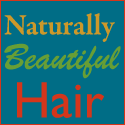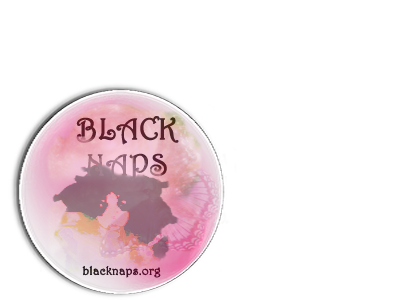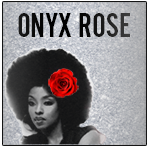Tuesday, August 17, 2010
HUMIDITY, HUMECTANTS,AND HAIR...
Humectants are used in skin and hair-care products to promote moisture retention. These hygroscopic compounds posses a chemical structure that attracts water from the atmosphere and binds it to various sites along the molecule.
There are many different types of molecules that are effective humectants, but the chemical similarity they share is having multiple alcohol (hydroxyl) or similarly hydrophilic sites (such as ethers or ammonium groups) available for hydrogen bonding with water molecules. The strength of the hydrogen bonding between humectants and H2O improves moisture retention by minimizing water loss due to evaporation.
These ingredients are used in many products, especially those designed for consumers with dry, damaged hair. While they can provide benefit in certain circumstances, it is important to understand how they work and under what circumstances they might provide less-than-optimal results. When considering whether to use humectants, the most important piece of the puzzle is how the weather can impact your hair and the performance of these molecules.
Effects of Relative Humidity on Hair and Humectants
The laws of thermodynamics have a daily influence on our hair. There is a driving force in nature for everything to be in a state of equilibrium. Molecules that exist in an area of higher concentration in contact with an area of lower concentration will move toward the area of lower concentration in an attempt to reach an equilibrium state where the concentration is the same for both areas. For example, dry hair exposed to a very humid environment will become gradually immersed with water molecules, as they diffuse from the air (an area of higher concentration) into the hair (an area of lower concentration). Curly hair is especially susceptible to this type of diffusion because it is naturally more porous than straight hair.
Hair exposed to very dry air without protection can lose its moisture, develop an unpleasant texture and can become unruly, flyaway, and frizzy. It also can become more prone to breakage and split ends. Conversely, unprotected exposure to excessive moisture and humidity can swell the hair cortex, causing the cuticle scales on the exterior of the hair shaft to become ruffled and giving hair a coarse, unpleasant texture. Clearly, neither scenario is desirable.
Low Humidity
In extremely low-humidity conditions, such as a cold, dry winter air, there is no appreciable amount of water in the air for the humectant to attract to the surface of the hair. In this particular type of climate, the best one can hope for with most traditional humectants is for them to prevent evaporation of water from the hair into the environment. Also, under these circumstances, there is some risk of the humectant actually removing moisture from the cortex of the hair itself, creating the problem it was intended to prevent.
That’s why in dry climates it is important to use conditioning products which rely on strong moisturizers rather than traditional humectants. However, it is interesting to note that new humectants are being developed that perform well even in low humidity (such as hydroxypropyl bis-hydroxyethyldimonium chloride and dihydroxypropyltrimonium chloride).
High Humidity
In high-humidity conditions, such as summertime in the southeastern United States or the tropics — where the relative humidity can easily reach or exceed 90 percent during the day — there is a tremendous amount of moisture in the air. This can be disastrous for curly hair. If curly hair is dry and damaged, it is very porous, and easily absorbs water from the air. In high-humidity conditions, this can cause curly hair to swell so much that cuticles are raised, making the surface of the hair very rough. These cuticles can then become entangled with cuticles of adjacent hairs and create a huge, tangled mass, which is prone to breakage. Also, curly hair swollen by excess water can lose its curl pattern, creating the dreaded summer frizz.
Clearly, products heavy in humectants will only exacerbate problems with humidity-induced frizz. Some humectants can also develop a sticky feeling when they become saturated with water, which is certainly an undesirable characteristic for hair. Thus, in tropical and subtropical climates, it is essential to maintain well-moisturized hair that is in good condition (which will be less prone to absorbing water from the hair). But it is preferable to use products containing fewer humectants or humectants with less hygroscopic capacity.
Due to the limitations and pitfalls of humectants in extreme weather conditions, it is apparent that these ingredients probably function best for curly-haired consumers in moderate climates, with temperatures and humidity in the medium range.
Examples of Humectants
Diols and Triols
Propylene glycol 1,2,6 hexanetriol Butylene Glycol Dipropylene glycol Hexylene Glycol Glycerin Triethylene glycol Erythritol Capryl glycol Phytantriol Hexanediol or -triol beeswax
Humectants of biological origin
Panthenol Sodium PCA Hyaluronic acid Inositol Glycogen
Sugars and modified sugars
Sorbitol Polyglyceryl sorbitol Glucose Fructose Xylitol
Hydrolyzed proteins
Elastin, Collagen Silk Keratin
Ethers
Isoceteth-x, Isolaureth-x, Laneth-x, Laureth-x, Steareth-x PEG-x (polyethylene glycol)Silicone copolyols
ENJOY!!!
Posted by Unknown at 7:39 AM
Labels: humidity and humectants
Subscribe to:
Post Comments (Atom)























8 comments:
thanks for this post,Zainab...:)
I just went natural like two months back,after my hair has proven to be completely damaged by relaxers/chemicals, and all.
I use Vatika hair products now,and it suits me well.
but,the hair close to my forehead is still very much sensitive and breaks easily.
Can you please recommend any products that will help in this regard?
thanks,and ramadan mubarak :)
@My world...Ramadan Kareem and thanks for the well wishes for ramadan ( smiles)
I use to use vatika oil and I liked it. As far as the front of your hair...one very important factor that I'm sure you maybe aware of is moisture...moisture...moisture !!!
water, and sealants are very important. Make sure your hair is well moisturized often and make sure there isn't a ingredient in the products you are currently using that may be causing your dryness and or breakage.
Lastly, try not to manipulate your hair a lot...this will cause more breakage to already fragile hair.
Big congrats to you on becoming a fellow natural...Enjoy...enjoy...enjoy!
Hope this helps...and thanks so much for stopping by.
Take care.
mashaAllah...thank you so so much :))
I use vatika oil that has henna,coconut oil,almond oil..
but,can you recommend other natural oils to look out for?
I appreciate all the help..
Take care too :))
@My world...Na'am, sure....olive oil is great ( inexpensive, and easy to get, local supermarkets)...then there's coconut oil...jojoba oil...grapeseed oil( which is said to be a lighter oil)... castor oil....there is a lot out there ...this is just a few.
Hope this helps...if you have any more questions and I feel I can help...feel free to ask , thats never a problem (smiles)
Take care.
thanks,dear :))
grapeseed is the one I havent tried,but will do so...
I appreciate all the help :D
Cheerz X
@My world....sure! no problem. Give the grapeseed oil a go, keep me posted on your results.
Take care.
Nice! great post. I have read all things and you described it in very simple and understandable way. Keep it up.
A Bob cut canada...Thanks!
Thanks for stopping by,Take care.
Post a Comment